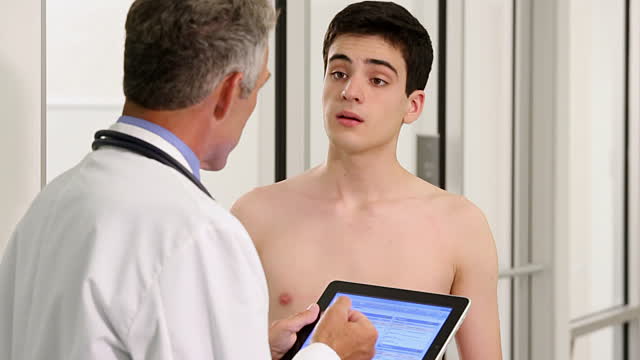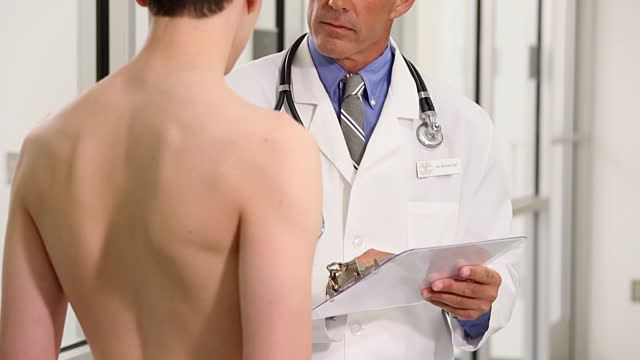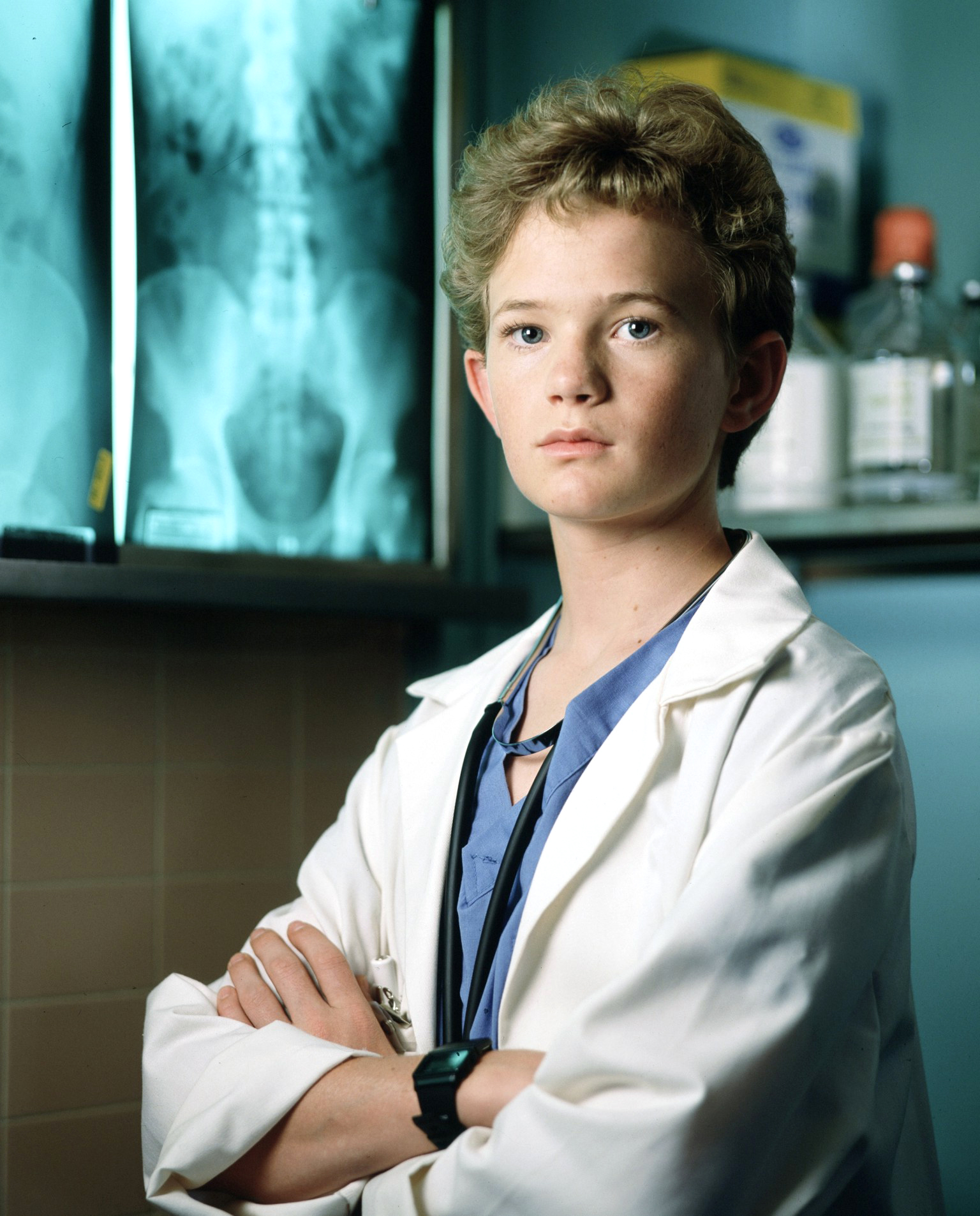Doctor’s Talking About Puberty and Sex
It seems that talking about puberty and sex is one of most every doctor’s LEAST favorite tasks. I know that because some research projects have studied the subject in patients of all ages with diseases of all types and by doctors of all specialties.
Well, it shouldn’t really surprise any of you because it’s your least favorite talk with your kids too (assuming you’re a parent)—and they’re YOUR kids.
When neither doctors nor parents talk about sex education
And yes, the same study showed that too; which leads to the question: “Then where are the kids learning ‘it’ from?”
As it turns out, from the place that all the up-in-arms parents clamored to tell the world was the worst place to get it—the school curriculum… and “out behind the barn.”
Frankly, in this supposed age of enlightenment, very little has changed.
Doctor’s Discussions About Puberty and Sex
The more things change, the more they stay the same
In this article I merely want to let you in on what the studies found, statistic wise, in order to make quite “transparent” our real world situation.
I don’t have a book to sell explaining how to go about doing it with a chapter on each type of parent and each type of child. That would make quite a volume; but, neither can I gloss over such revealing information.
I guess my hope is that once you know where we stand you’ll be able to take at least some action, because you know your family better than I.
I CAN give you a few things I’ve learned about how I’ve done it in the past… which might get you started if you need it.
Research About Doctors’ Discussions About Puberty and Sex

Let’s begin with a finding you would be hard pressed to say that you saw coming:
And even then, in the US, most of them (who were younger [median 48 years] and previously sexually active) said that THEY had to initiate the conversation or it wouldn’t have happened.
And these are the doctors who, among anybody, see patients when they are “well” and/or are paying for “preventive care” visits—which are “extended” time visits on the doctor’s calendar, must be scheduled way in advance and which have clear “standard of care” guidelines from specialty boards listing things which should be discussed.
Researchers questioned a sample of 3,000 adults over 57 and found that statistic; and it holds true even if the patient has had a cancer of the genital tract.
Only about 35% percent of women who’ve been seeing multiple physicians over and over for years (at least 5) trying to deal with the effects of genital tract cancer say any of them have tried to initiate a discussion about its effects on sexuality—even though 75% feel doctors should talk about it with patients like them.
Now let’s talk about adolescents who are still within the realms of routine “preventive care” visits, immunizations and many major efforts to prevent all kinds of behaviorally-related catastrophic events.

A study which, with consent, actually (anonymous and blind to the researchers) recorded doctors visits with teenage patients, revealed that less than 60% followed the “script” and mentioned either sex, sexuality or dating during a visit specifically intended to do so. AND, even if they did, the conversation only lasted 36 seconds (on average).
None of the teenage patients initiated the talk, and only 4% of them had prolonged conversations with their doctors.
Unfortunately, for us all, it’s rare for patients to find someone who does regard it as their job. Why am I going on about this? Just to be transparent enough to let parents know that most likely: if you’re not doing it, it’s not being done.
Why?
PARENTS: Ok, let’s face it. If you had your way you’d lock your teen away in a castle tower until their brain fully matured at around 24 or so. The sacrifice of putting up with all their shenanigans has made you… sort of… fond of them… for the most part.
Additionally, it’s clear to you that your credibility with them is at an all time low and you’ve ample experience that absolutely anything you tell them NOT to do moves right to the top of their day-planner to-do list! You’re afraid of adding anything else to the buckets of things you’re already trying to help them get out of.
And besides, in our society sex of any kind is continually drummed at us as being only for perverts. It’s just too private to be spoken out loud.
TEACHERS: Don’t fool yourselves, teachers don’t relish the task any more than you do. They’re not blind and know exactly what kind of nuclear mine field surrounds their every syllable and action. If they’re in a state with a mandated curriculum they don’t deviate a nanometer from the book that was vetted by the board and given to a middle-man to hand to them for use on the kids.
And they soon realize that the best thing of all is to have the kids read it themselves.

DOCTORS: First of all, even if it had ever been true, doctors haven’t initiated a “Dr. Welby” kind of relationship with patients in a long time—perhaps since the TV program went off the air in the 60s. And, a discussion about sex needs to have at least a little social groundwork laid before being jumped into.
Doctors will excuse that there’s a lack of time or of fearing to intrude on or embarrass the patient. There’s a general discomfort with the subject anyway and the current social/legal/cultural climate merely serves to accentuate it. Besides, these days, there’s nearly always a third (or fourth or fifth) person in the exam room at the same time.
Almost forever, parents have brought other siblings to the visit—even well into latency or puberty— and there has understandably been the need for a ‘chaperone’ during an exam of the opposite sex from the physician; but, now that Obama has done his thing with the medical record, there are often one or two onlookers just to handle the data entry and record keeping.
Lastly, inadequate training of physicians in sexual health is probably a contributing factor too, I suppose. Studies show doctors report and perceive the greatest discomfort when taking sexual histories of patients of the opposite gender, as well as very young persons (under 18 years of age) and adults older than 65 years.
All in all, at the end of the day, only in rare cases these days do adolescents think of their doctor as the best person to discuss sex with… an absurdly unfortunate oversight on their part considering the ‘legal protection of secrecy’ they have when doing so. The status quo is for the doctor to: off-handedly ask if they’re having any sexual concerns while busy doing something else, wait for the certain shrug or non-response and let it go at that.
PATIENTS:
I once was a military physician staffing an adolescent clinic and, unfortunately, have actually seen teen patients use those very considerations I’ve listed above to their advantage in trying to manipulate a visit they couldn’t get out of, away from me “finding out” an issue they were trying to avoid—i.e. bringing others in the room, causing confusing distractions and wearing layers of clothes difficult to get out of.
Having been taught “stranger danger” all their lives, we doctors are usually just another “dangerous stranger” for them to ignore or work around. They almost never want to be the one to start the conversation and don’t ask questions; perhaps, at least a little, because they think the doctor might be dismissive, ridicule or “tattle.”
Having absolutely anyone else in the room with a teen changes the entire picture for them, considerably—as does lack of “connection” (like eye contact) or showing confidence and forthrightness. Sometimes patients don’t know what they don’t know so can’t be expected to ask about it. Many times they know what they don’t know but not how to articulate the questions to find out.
So, What To Do?

I understand and commiserate with all the issues I’ve just listed; because: “I’ve been there done that.” It was the time spent in the adolescent clinic I mentioned which kicked me into a different trajectory. Within days it was obvious to me that I wasn’t succeeding and definitely not making a difference. One twenty-minute visit in a room filled with people and using a “well child form” was not only wasting their and my time, it was usually counterproductive.
The visit wasn’t just about body development or functioning or maturing; it’s also about identity and orientation and expectations and acceptance and developing skills of life. It was about the patient and me—parents were an adjunct to OUR process. I had to answer every question without hesitation or reluctance and with absolute honesty.
I had to remove all vestiges of awkwardness or shyness in what I asked or explained and treat everything I said and did as: “no big deal,” “just between us,” “out on the table,” “fact-finding without judgementalism,” “I know exactly what you mean”—a sort of: very smart, one of the gang, non-parental adult, BFF-confidant.
If one or both parents were in the room I had to set the tone and lay groundwork and didn’t have a lot of time to do it. Parents and siblings were excused to the waiting room and I found it best to jump into an explanation without delay and proceed as if we had already had a great confidential relationship for years.
Somehow contracting a confidential relationship in mere minutes isn’t something a parent has to do of course but on occasion works to a doctors advantage—they’re not worrying about riding in the car with me home. The words may be different each time but basically: “I’m not your parent but I’m getting to like you and want to help you with your health decisions. You might not know it yet but I can be like your best friend, keep confidences and keep you safe and healthy—if you choose to let me. But I need to know what you’re doing or thinking of doing so I can help.”
I try to keep a conversation going continually as I do the examination and comment on what I’m doing and what I see. I put questions about “touchy” subjects in the context of logical health information like stress, fatigue, ability to accomplish tasks of daily living, relationships and social support.
For children and adolescents questions like “how many close friends do you have?” “do you have anyone you know secrets about, or who you tell secrets to?” “where do you have the most fun?” etc.
All that can lead to: “it looks like you’re into puberty, when did it start for you?” “So far, has puberty been going for you like they told you in school?” “Who do you talk about things like sex to? Do your parents talk to you about sex?”
You see what I mean? Matter-of-fact, simply conversational questions can defuse any tendency for coyness or embarrassment. Sometimes I can state that I’ve seen a lot of the kids they see at their school too, which gives me a bit of credence.
Once one question about sex has been broached, subsequent ones flow much more easily; even into “have you had sex yet?” Then, at least from my vantage point, all the follow-up safety related questions are easy.
I realize this short missive isn’t much; but it should give you some ideas.
☤
We all need to realize that there’s not even a shred of doubt that YOUR teens are talking about sex… maybe just not with you.
10 Posts in Puberty Talk (tanner) Series
- Boys Underwear: Boxers, Briefs or Commando - explanation, recommendations – 22 Sep 2018
- FAQ - Boxers, Brief's or Commando – 28 Aug 2018
- Doctor's Talking About Puberty and Sex to Patients – 28 Aug 2017
- Video: Puberty Time Lapse – 5 Jul 2017
- Puberty: Psychological Stages - Part 2 – 13 Aug 2015
- Puberty: Psychological Stages – 5 Aug 2015
- Tanner Stages - Boys – 28 Jul 2015
- Tanner & Growth - Girls – 20 Jul 2015
- Tanner Stages and Growth – 12 Jul 2015
- Puberty, Tanner Series: Intro/Index – 11 Jul 2015

